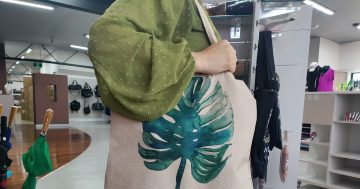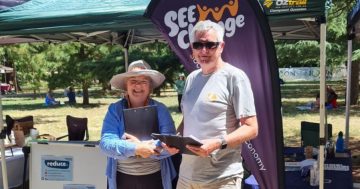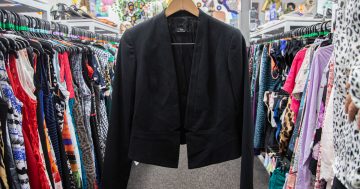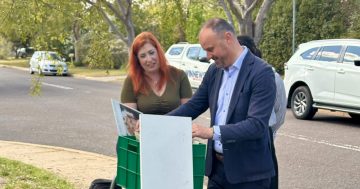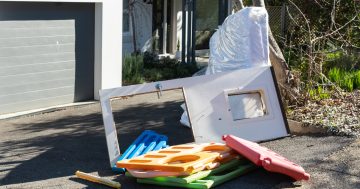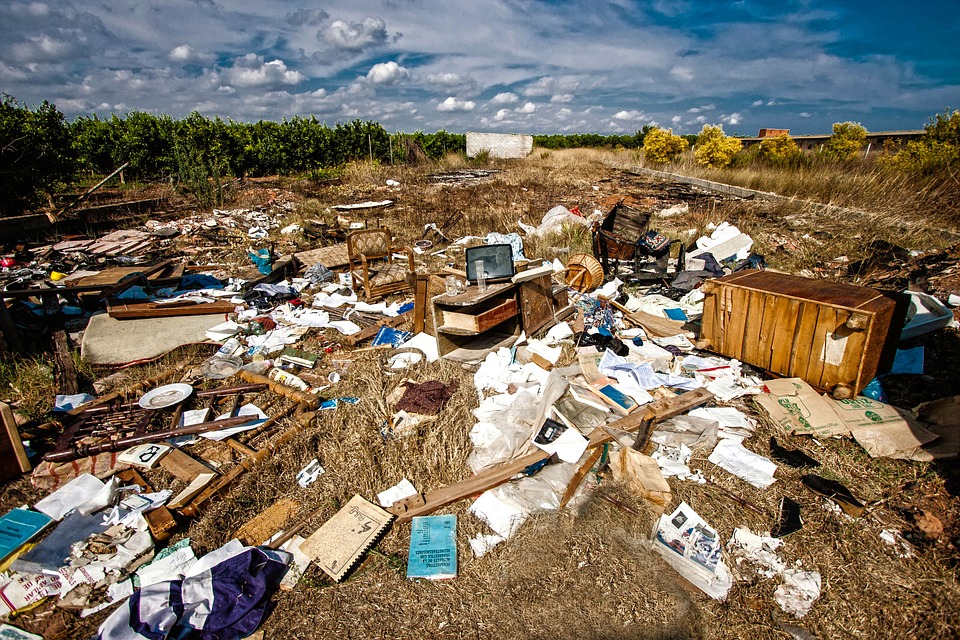
In recent weeks the ABC’s ‘War On Waste’ program has been shining a spotlight on the staggering amount of waste we produce as a nation. Whether it’s imperfect food, plastic bags, coffee cups or fast fashion, this waste has devastating environmental impacts. It’s timely then to take a closer look at Canberrans’ appetite for consumption and how we can take action to lighten our ecological footprint and mitigate climate change.
The need for urgent climate action is clear. Here in Canberra we’ve has just had our hottest summer on record with the mercury hitting at least 35°C on 18 days—already more frequent extreme heat than projected for 2030. At an international level, world leaders have agreed that we must work together to prevent global temperatures rising beyond 1.5 degrees. In the ACT, the government has committed to ambitious climate targets — by 2020 we will generate 100% of our electricity from renewable sources. There’s a lot that can be done at an individual level, but it takes a little more mindfulness and changing the way we consume.
Some sustainable behaviours are already second nature, including using the car less, planting more trees, and turning off lights and appliances when we aren’t using them. But what about the “stuff” we consume? I’m talking about products we routinely buy and dispose of without consideration for how we could make them last longer or recycle them. Research shows that Canberrans have a problem with stuff—the amount of land required to support our demand for goods and services, and absorb our waste (including greenhouse gases), is the highest in Australia and more than three times the world average. The 2015 State of the Environment Report revealed that this ‘ecological footprint’ averaged 8.9 global hectares for each ACT resident in 2011-12, or an astounding 14 times the land area of the territory! Reducing the impact of our consumption clearly needs to be a long-term goal for all Canberrans.
So what can we do to tread more lightly when products are designed to have a short lifespan and every purchase produces piles of packaging waste? Think about your phone, laptop, clothes and furniture—how long do you hold on to them and do you make an effort to make them last? If sent to landfill, a nylon shirt takes 30 to 40 years to break down and a mobile phone case up to 1,000 years. Scary facts.
It’s important that we make more conscious purchasing choices. Some positive steps Canberrans can take to reduce waste and ease the pressure on our environment include:
- Repair, reuse or borrow where possible instead of buying new things. There are a range of renewed appliance stores in Fyshwick and the Green Shed op shops at Mugga Lane Resource Management Centre, Mitchell and Garema Place have a wide selection of pre-loved goods. Gumtree is also always a great option for second hand furniture and electronics.
- Before tossing something in the bin, see if there’s another use for it. Clothing and furniture that’s no longer useable can be recycled into new products. Canberra company boyandgirlco makes recycled furniture and Paperworks repurposes jeans.
- Take advantage of MobileMuster, a free not-for-profit mobile phone recycling program that accepts all brands and types of mobile phones, plus their batteries, chargers and accessories.
- Invest in higher quality products. They will save you money in the long run as they tend to be more efficient and will last longer.
- When buying presents, consider gifting experiences, such as concerts, movies or going to the theatre, instead of buying more stuff.
- Make your home and appliances more energy efficient with the help of Actsmart’s free Sustainable Home Advice service.
Can you imagine the collective impact if we all made more conscious purchasing choices and reduced our stuff quota just slightly? Individual actions, along with community support for government sustainability initiatives, are critical if we are to reduce our impact on the planet. In addition to our target of 100% renewable electricity by 2020, the ACT Government is working on an action plan to achieve zero net emissions by 2050 at the latest. This critical next step will involve working with the community to highlight the importance of mindful consumption and the benefits of choosing sustainable alternatives to the stuff we buy.












